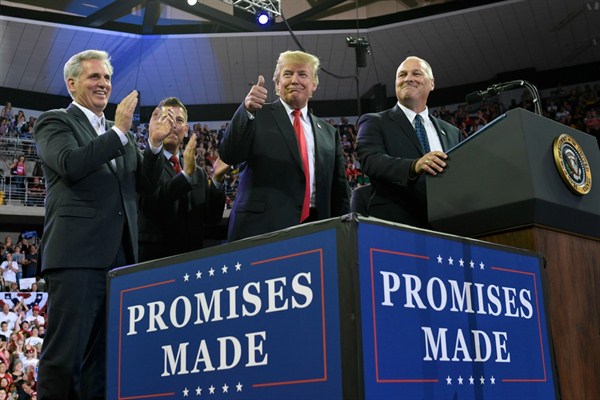To whatever extent it is possible to become accustomed to the president of a major liberal democracy continuously lying, day after day, the world has grown more or less used to President Donald Trump’s practice of incessantly spraying his unique stream of falsehoods across social media, political rallies and assorted public events. Editors at major media organizations have grappled with the complications of deciding whether or when to label the president’s untruths as “lies,” noting that a lie requires a conscious intention to deceive and knowledge that a statement is incorrect—and it is not always clear that is the case when Trump fires off one of his regular whoppers.
What is beyond dispute is that Trump has turned fact-checking into a growth industry, recently accelerating the speed of its assembly line to a rate that makes it nearly impossible to keep up. At a rally in Minnesota late last month, fact-checkers clocked him making a false statement every two minutes. Multiple databases have recorded thousands of lies or untruths since he took office.
Whatever the reason for the unprecedented pace of falsehoods, there is no question that the practice has major implications. Beyond the ethical and political ones, Trump’s made-up world has a serious, and potentially devastating, impact on policy.

